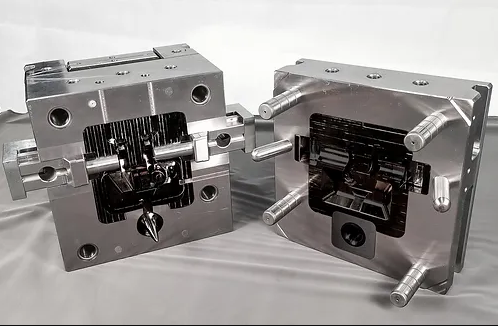In the world of manufacturing, precision and efficiency are essential elements for success. One material that plays a crucial role in achieving these goals is aluminum. Aluminum is widely used in various industries due to its exceptional properties, including lightweight, high strength, corrosion resistance, and excellent machinability. In this article, we will explore the significance of aluminum machining and how it contributes to precision and efficiency in manufacturing processes.
Benefits of Aluminum Machining:
Lightweight and High Strength: Aluminum is renowned for its lightweight nature, making it an ideal choice for industries such as aerospace, automotive, and electronics. Machining aluminum allows manufacturers to create intricate and complex components without compromising on strength. This lightweight property not only enhances fuel efficiency but also reduces transportation costs.
Excellent Machinability: Aluminum is considered one of the most easily machinable materials in the industry. It exhibits low cutting forces and excellent chip formation, resulting in faster machining speeds and improved tool life. This characteristic makes aluminum an attractive option for high-volume production, reducing manufacturing lead times and increasing overall efficiency.
Corrosion Resistance: Aluminum possesses natural corrosion resistance properties, adding to its appeal in various applications. Machining aluminum components ensures that the protective oxide layer is not compromised, providing long-lasting performance in harsh environments. This corrosion resistance reduces maintenance costs and improves the reliability of the final product.
Aluminum Machining Techniques:
CNC Machining: Computer Numerical Control (CNC) machining is a widely used technique in aluminum machining. CNC machines can accurately and precisely shape aluminum components based on digital designs. This automated process eliminates human errors and enables the production of complex geometries with tight tolerances. CNC machining is particularly advantageous for repetitive tasks and high-volume production.
Turning: Turning is a machining process that involves rotating the workpiece while a cutting tool removes excess material. In aluminum machining, turning is commonly used to create cylindrical components such as shafts, pins, and valves. The ability to achieve high surface finishes and tight tolerances makes turning an essential technique in the precision manufacturing of aluminum parts.
Milling: Milling is another vital technique in aluminum machining that involves rotating multiple cutting tools to remove material from the workpiece. This process is suitable for creating various shapes, including slots, pockets, and contours. With advanced milling machines and cutting tools, manufacturers can achieve excellent surface finishes and complex shapes with minimal setup time.
Applications of Aluminum Machining:
Aerospace Industry: The aerospace industry heavily relies on aluminum machining for manufacturing aircraft components. From structural frames to engine parts, machining aluminum ensures lightweight yet robust components that meet stringent performance requirements.
Automotive Industry: The automotive industry utilizes aluminum machining to produce engine blocks, transmission components, and body panels. Aluminum\’s lightweight property contributes to fuel efficiency, while its machinability enables mass production of intricate parts at high speeds.
Electronics Industry: Aluminum machining plays a crucial role in manufacturing electronic devices such as smartphones, tablets, and laptops. Machining aluminum allows for precise and intricate designs, ensuring optimal heat dissipation and durability.

Conclusion:
Aluminum machining is a key driver of precision and efficiency in the manufacturing industry. Its lightweight nature, excellent machinability, and corrosion resistance make it a preferred choice for various applications. Through techniques like CNC machining, turning, and milling, manufacturers can create complex aluminum components with tight tolerances and high surface finishes. From aerospace to automotive and electronics industries, aluminum machining plays a vital role in producing high-quality and reliable products. Embracing aluminum as a machining material can lead to improved productivity, reduced costs, and enhanced overall performance for manufacturers worldwide.
-

- OEM high pressure die casting magnesium alloy wheel for e-bike
-

- CNC machined parts Steering bracket
-

- Customized die-casting parts&components
-

- Thixomolding parts & components mobile phone middle board processed
-

- Magnesium alloy Thixomolding parts for oxygen suction machine housing
-

- Mangensium alloy die-casting Thixomolding metal parts

 0086-750-5616188
0086-750-5616188 +86 13392089688
+86 13392089688 sales@zhongmei-tech.com
sales@zhongmei-tech.com







